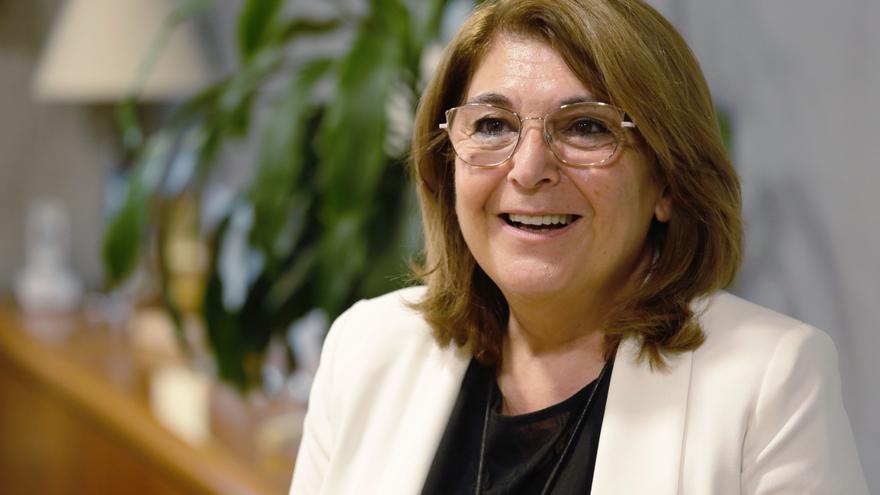–
The inclusive language has had a long debate in recent days in the Region on account of a motion presented yesterday by those expelled from Vox in the regional Assembly and that was decaffeinated by an alternative text of the PP parliamentary group, since it went from asking for sanctions for those who use inclusive language in the regional administration to fine those who do not speak Spanish well. This Thursday the Minister of Education, María Isabel Campuzano, has indicated during the presentation of the election process to the school councils that his department remove inclusive language from textbooks once the Ministry of Education has updated and approved the new school curricula for Primary, Secondary and Baccalaureate.
Some of these resumes must go into effect from the next course in different school years, so Education will choose to choose new teaching books that do not include these forms of expression that cover the references for masculine and feminine. Campuzano has defended that his department wanted to address this issue as they have already done. “countries like France or Germany” and also communities like Andalusia. “We have proposed to correct in the textbooks what makes it difficult for the students to understand,” emphasizes the counselor, since for her this is “an educational issue that should matter to the Ministry”.
Counselor Campuzano, who belongs to the Vox parliamentary group although she is expelled from this party, has indicated that the intention is to bet on textbooks where “that” does not exist. language forcing that is done many times to introduce inclusive language impairs student understanding“, a line of work that the head of Education qualifies as” common sense. “On the other hand, the general director of Educational Centers, Jesús Pellicer, has remarked that the new school councils will choose a representative who will promote actions or measures in the center educational programs that favor “real and effective equality” between men and women, something that will also contemplate “inclusive language”.
In reference to the period that opens to present candidacies to the school councils of the centers, Pellicer has highlighted that half of the population of the Region, according to estimates by the Ministry, is called to participate in the elections on November 24. The objective of the Ministry is that there is a participation of at least 30% of the educational community of each center, including students, since in the last elections of 2019 that percentage did not exceed 10%. The pandemic paralyzed the elections last year, the counselor recalled.
Campuzano has also recalled that the new education law or Lomloe of the Ministry gives more power and voice to parents within school boards, so they hope that this fact will increase the participation of parents, since they will have more force in making decisions that affect the academic environment of the centers.
FAPA Reactions
The FAPA Juan González has responded to the statements of Counselor Campuzano recalling that inclusive language “does not hinder the understanding of students.” In this case, they point out, “what hinders reading literacy is not invest in teachers, or in lower ratios, or in public education“. The regional Federation of AMPAs is also immersed in promoting the elections to the school councils in order to increase participation on November 24.” With Lomloe, it is possible to vote again and the weight of parents increases and the mothers in the decisions and the functioning “of these internal organs of the centers, for which they believe that” it is an opportunity that must be seized to work together with the cloisters for the improvement of education.
– .


